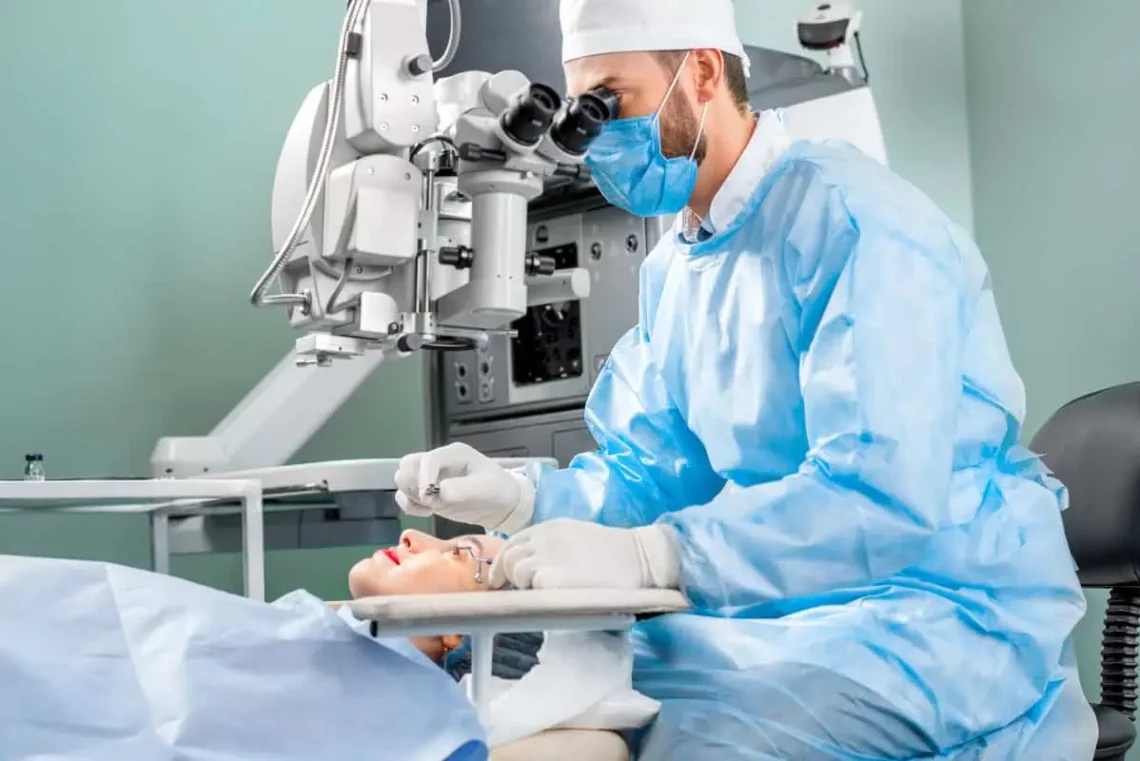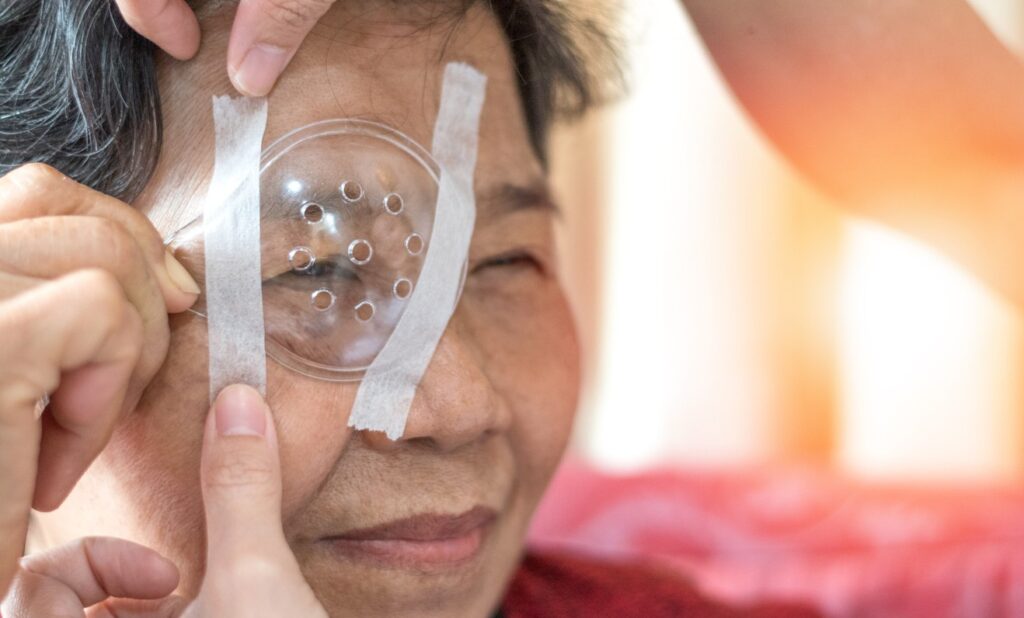
What to Expect Before, During, and After Cataracts Surgery
Cataracts can greatly impact your vision, making daily activities more challenging and affecting your overall quality of life. Fortunately, cataract surgery is a common and effective solution to restore clear vision. If you’re considering cataract surgery, it’s important to understand what to expect before, during, and after the procedure. This article will guide you through the entire process and provide helpful information to ensure a smooth experience.
Understanding Cataracts and Their Impact on Vision
The Basics of Cataracts
Cataracts are a common eye condition that occurs when the lens of your eye becomes cloudy. The lens is responsible for focusing light onto the retina, allowing you to see clearly. As cataracts develop, your vision may become progressively blurry, hazy, or less vibrant. Everyday tasks such as reading, driving, or recognizing faces can become difficult. Cataracts surgery typically develop slowly over time and are most commonly associated with aging.
While aging is the primary cause of cataracts, other factors such as smoking, diabetes, and prolonged exposure to ultraviolet light can also contribute to their development. Genetics may play a role in predisposing some individuals to cataracts at an earlier age. It is essential to have regular eye examinations to detect cataracts early and discuss treatment options with your eye care provider.

How Cataracts Affect Your Vision
As cataracts progress, you may notice a variety of vision changes. Colors may appear faded or yellowed, and you may experience increased sensitivity to glare, especially when driving at night. Additionally, cataracts can cause double vision or frequent changes in your eyeglass or contact lens prescription. If these symptoms sound familiar, it may be time to consider cataract surgery.
Cataract surgery is a common and highly successful procedure that involves removing the cloudy lens and replacing it with an artificial intraocular lens. This surgery is typically performed on an outpatient basis and has a quick recovery time. Many patients experience significantly improved vision and quality of life after cataract surgery, with some even reporting better vision than they had before developing cataracts. It is important to consult with your eye surgeon to determine the best course of action for your individual needs and visual goals.
Preparing for Cataracts Surgery
Initial Consultation and Eye Examination
The first step in preparing for cataract surgery is scheduling an initial consultation with your ophthalmologist. During this visit, your doctor will perform a comprehensive eye examination to determine the severity of your cataracts and assess your overall eye health. This examination may include tests to measure your visual acuity, evaluate the shape of your cornea, and assess the condition of your retina.
Additionally, your ophthalmologist may also conduct a series of specialized tests to gather detailed information about your eye structures and identify any underlying issues that may impact the surgery. These tests could involve imaging techniques such as optical coherence tomography (OCT) to create cross-sectional images of the retina or ultrasound to measure the length of your eye.
Choosing the Right Surgeon
Choosing the right surgeon is crucial for a successful outcome. Take the time to research and find a highly skilled and experienced ophthalmologist who specializes in cataract surgery. Seek recommendations from friends, family, or your primary care doctor, and don’t be afraid to ask questions during your consultation to ensure you feel comfortable and confident in your surgeon’s expertise.
Furthermore, when selecting a surgeon for your cataract procedure, consider their level of experience, success rates, and the technology they use. A surgeon who stays current with the latest advancements in cataract surgery techniques and equipment may offer you a wider range of treatment options and potentially better outcomes.
Pre-Surgery Instructions and Guidelines
Prior to your cataract surgery, your surgeon will provide you with specific instructions to follow. These instructions may include discontinuing certain medications, such as blood thinners, before the procedure, and fasting for a certain period of time. It’s important to carefully follow these guidelines to maximize the success of your surgery and minimize any potential risks.
Moreover, your surgeon may also discuss with you the importance of maintaining good eye health habits leading up to the surgery, such as avoiding eye rubbing and protecting your eyes from injury. These simple yet crucial steps can help ensure that your eyes are in the best possible condition for the upcoming procedure, promoting a smoother recovery and better post-operative results. Learn more about Pre-Surgery Instructions and what to do at https://www.med.unc.edu/ent/uncvoicecenter/for-patients/your-surgery/pre-surgery-instructions/
The Cataract Surgery Procedure
An Overview of the Surgery
Cataract surgery is typically performed as an outpatient procedure, meaning you won’t need to stay overnight in the hospital. The surgery itself usually takes less than an hour, and you should expect to spend a few hours at the surgical center for pre-operative preparations and post-operative recovery. During the procedure, your surgeon will remove the cloudy lens and replace it with an artificial intraocular lens (IOL) to restore clear vision.
Before the surgery begins, the surgical team will ensure that you are comfortable and well-informed about the procedure. They will review your medical history, discuss any concerns you may have, and answer any questions to alleviate any anxiety you may be feeling. The operating room will be equipped with state-of-the-art technology to ensure the highest level of precision and safety during the surgery.
The Role of Anesthesia in Cataract Surgery
Cataract surgery is usually performed under local anesthesia, which means you’ll be awake but your eye will be numb. Your surgeon may also provide sedation to help you stay relaxed during the procedure. General anesthesia is rarely used for cataract surgery unless there are specific medical reasons. Your surgeon will determine the most appropriate anesthesia option based on your individual needs.
Local anesthesia for cataract surgery involves numbing eye drops and possibly a mild sedative to keep you calm. This type of anesthesia allows you to communicate with your surgical team during the procedure, and you may experience some light pressure or mild discomfort, but you should not feel any pain. The anesthesia team will monitor your vital signs throughout the surgery to ensure your safety and comfort.
Post-Operative Care in the Hospital
After your surgery is complete, you’ll remain in the recovery area for a short period of time to ensure your well-being. Your surgeon may provide you with eye drops or other medications to prevent infection and reduce inflammation. You’ll also receive detailed instructions on how to care for your eye at home and when to return for a follow-up visit.
During the post-operative period, it is crucial to follow your surgeon’s instructions diligently to promote proper healing and optimize your visual outcome. You may experience some mild discomfort, itching, or sensitivity to light in the days following surgery, but these symptoms should gradually improve. It’s important to attend all scheduled follow-up appointments so your surgeon can monitor your progress and address any concerns promptly.
Recovery and Post-Surgery Care at Home
Immediate Post-Surgery Care
Once you return home, it’s important to take proper care of your eyes to ensure a smooth recovery. You may be advised to wear an eye shield or protective glasses to avoid accidentally rubbing or bumping your eye. This precautionary measure is crucial as your eye is still healing and vulnerable to external factors. By protecting your eye, you minimize the risk of any complications that could potentially delay your recovery.
It’s normal to experience some mild discomfort, itchiness, or sensitivity to light in the days following surgery. These sensations are part of the healing process and should gradually subside. However, it’s essential to follow your surgeon’s instructions on how to manage these symptoms effectively. They may recommend using prescribed eye drops or applying cold compresses to alleviate any discomfort. Rest assured that these temporary inconveniences are a small price to pay for the improved vision that awaits you. To read more about Post-Surgery Care click here.
Long-Term Eye Care After Cataract Surgery
While cataract surgery itself is a permanent solution, it’s essential to continue taking care of your eyes in the long run. Attend follow-up appointments with your surgeon as scheduled to monitor your healing progress and ensure any potential complications are addressed promptly. These appointments are an opportunity for your surgeon to evaluate your vision improvement and make any necessary adjustments to your post-operative care plan.
In addition to follow-up appointments, your ophthalmologist may also recommend regular eye exams to monitor your overall eye health and check for any additional vision concerns. These exams are important for detecting any new eye conditions that may arise over time, allowing for early intervention and treatment. By staying proactive in your eye care, you can maintain optimal vision and prevent any future vision-related issues.

Potential Complications and How to Handle Them
Although cataract surgery is generally safe and effective, complications can occur in rare cases. These may include infection, bleeding, increased eye pressure, or swelling. While the likelihood of experiencing these complications is low, it’s important to be aware of the potential signs and symptoms.
Severe eye pain, sudden vision changes, or excessive redness are indicators that something may be amiss. If you experience any of these symptoms, it’s crucial to contact your surgeon immediately. Prompt communication with your surgeon can help address any complications swiftly, ensuring the best possible outcome for your recovery.
Remember, cataract surgery is a highly successful procedure that can significantly improve your vision and quality of life. By understanding what to expect before, during, and after the surgery, you can approach the process with confidence and be prepared for a smoother recovery. Remember to consult with your eye care professional for personalized advice and recommendations. Soon enough, you’ll be enjoying clear vision once again!
Related : Understanding the Benefits of Cataract Surgery for Clearer Vision




